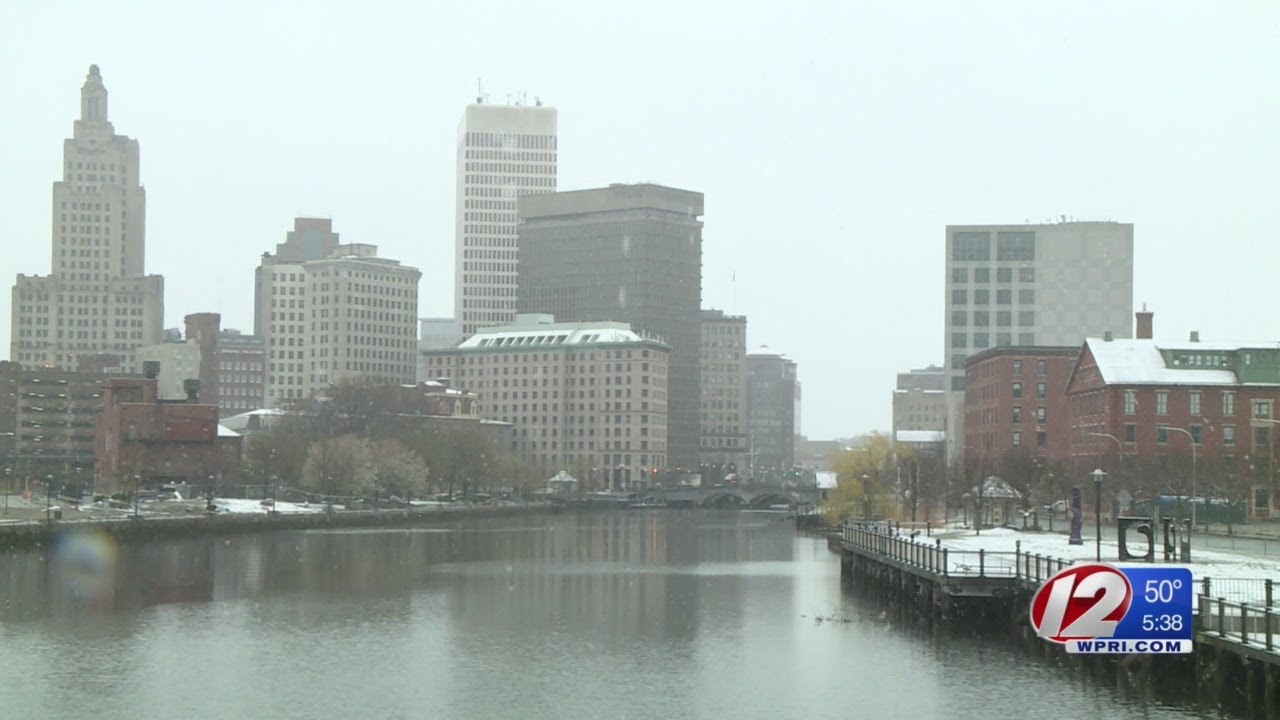Introduction: Exploring Pollution in Rhode Island
Rhode Island, a small but densely populated state in the United States, is not immune to the problems posed by pollution. Despite its size, the state faces numerous challenges in combating different types of pollution that threaten the environment, ecosystems, and public health. This article aims to delve into the various forms of pollution in Rhode Island, analyzing their sources, impacts, and the efforts made to address them. From air and water pollution to soil contamination, industrial waste, and transportation emissions, Rhode Island faces complex environmental issues that require careful attention and proactive measures.
Understanding Pollution Sources in Rhode Island
To effectively combat pollution in Rhode Island, it is crucial to identify the sources that contribute to its prevalence. The state’s diverse economy and bustling urban centers are major contributors to pollution. Industries, agriculture, transportation, urbanization, and waste management practices all play a role in the contamination of Rhode Island’s air, water, soil, and overall environment. Understanding these sources is vital in formulating targeted strategies to mitigate pollution and safeguard the state’s natural resources.
Air Pollution: A Threat to Rhode Island
Air pollution poses a significant threat to Rhode Island’s environment and public health. Emissions from vehicles, industrial activities, and power plants release pollutants such as particulate matter, nitrogen oxides, sulfur dioxide, and volatile organic compounds into the air. These pollutants contribute to respiratory diseases, cardiovascular problems, and other health issues. Rhode Island’s geographical location, situated between major urban areas, exacerbates the problem as it receives pollution from neighboring states. Efforts through stricter regulations, vehicle emission controls, and transitioning to cleaner energy sources are being implemented to combat air pollution in Rhode Island.
Water Pollution: Challenges and Concerns
Rhode Island’s beautiful coastline and numerous water bodies are at risk due to water pollution. Sources of contamination include industrial waste, stormwater runoff, and agricultural practices. The discharge of untreated sewage and chemicals into rivers, lakes, and coastal areas can harm aquatic life, degrade water quality, and endanger public health. The state is working towards improving wastewater treatment facilities, implementing better stormwater management practices, and reducing nutrient runoff from agricultural operations to address water pollution concerns.
Soil Pollution: Impact on Rhode Island’s Ecosystems
Soil pollution, caused by industrial activities, improper waste disposal, and chemical usage in agriculture, poses a threat to Rhode Island’s ecosystems. Contaminated soil affects the health of plants, animals, and humans, as toxins can enter the food chain. Additionally, soil pollution can lead to a decrease in soil fertility and hinder agricultural productivity. Rhode Island has implemented measures to remediate polluted sites and regulate the usage of hazardous substances in industries and agriculture to minimize soil pollution and protect its ecosystems.
Industrial Pollution: Risks and Regulations
Rhode Island’s industrial activities produce significant amounts of pollution that can harm both the environment and human health. Industries such as manufacturing, energy production, and chemical processing release toxins into the air, water, and soil. These pollutants can cause respiratory problems, contribute to climate change, and contaminate water sources. The state has established regulations and permits to control industrial pollution, encouraging sustainable practices and promoting the adoption of cleaner technologies.
Agricultural Pollution: Implications for Rhode Island’s Farms
The agricultural sector in Rhode Island contributes to pollution through the use of pesticides, fertilizers, and improper waste management. Runoff from farms can carry these chemicals into water bodies, leading to water pollution and the degradation of aquatic ecosystems. Rhode Island’s Department of Environmental Management works with farmers to promote sustainable agricultural practices, reduce chemical usage, and implement proper waste management techniques to minimize agricultural pollution.
Urbanization and Pollution in Rhode Island
As urban areas expand in Rhode Island, pollution associated with urbanization becomes a pressing concern. Increased construction activities, traffic congestion, and the heat island effect contribute to air pollution, water runoff, and the loss of natural habitats. Rhode Island endeavors to manage urban growth sustainably by incorporating green spaces, promoting energy-efficient buildings, and encouraging public transportation usage to mitigate the environmental impact of urbanization.
Transportation Pollution: Road to Environmental Concerns
Transportation plays a significant role in pollution, particularly through vehicle emissions. Rhode Island’s reliance on cars and trucks contributes to air pollution and greenhouse gas emissions. The state has implemented initiatives to reduce transportation pollution, including promoting electric vehicles, improving public transportation systems, and investing in alternative fuels. These efforts aim to reduce emissions, improve air quality, and alleviate the environmental concerns associated with transportation.
Waste Management: Rhode Island’s Battle with Pollution
Effective waste management is crucial to prevent pollution and protect Rhode Island’s environment. Improper waste disposal, including landfilling and incineration, can release harmful substances into the air, soil, and water. The state has implemented measures to encourage recycling, reduce waste generation, and promote sustainable waste management practices. Rhode Island’s commitment to waste reduction and recycling initiatives has led to a significant decrease in overall waste production and pollution.
The Health Impacts of Pollution in Rhode Island
The pollution challenges faced by Rhode Island have direct implications for public health. Air pollution can lead to respiratory illnesses, cardiovascular diseases, and other health complications. Water pollution can contaminate drinking water sources and cause gastrointestinal diseases. Soil pollution can impact food safety and contribute to the spread of toxins in the environment. Recognizing these health risks, Rhode Island is working to reduce pollution, improve air and water quality, and protect the well-being of its residents.
Government Initiatives: Tackling Pollution in Rhode Island
The government of Rhode Island has taken significant steps to address pollution issues. Through regulatory measures, environmental programs, and collaborations with stakeholders, the state aims to mitigate pollution from various sources. Rhode Island’s Department of Environmental Management plays a crucial role in implementing and enforcing environmental regulations, promoting sustainable practices, and educating the public about the importance of pollution prevention. Furthermore, the state actively seeks federal funding and partnerships to support pollution reduction initiatives and ensure a cleaner and healthier Rhode Island for future generations.





